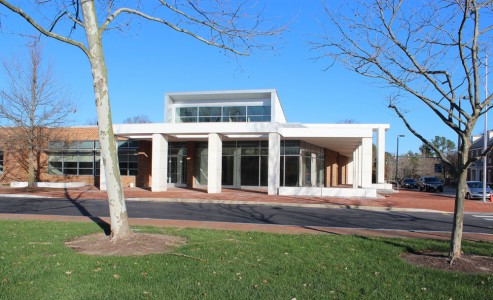Thursday, Jan. 24, the League of Women Voters of the Williamsburg Area hosted a discussion in the Williamsburg Regional Library concerning Virginia’s Medicaid expansion. The League, a nonpartisan political organization that seeks to improve active and informed political participation, invited individuals from a variety of different fields and Medicaid experiences to speak and share their perspectives on how the expansion may affect their respective fields.
After the passage of the Affordable Care Act, states had the option to adopt a Medicaid plan that would increase coverage for non-parents and pregnant women called the New Health Coverage for Adults. Virginia is the 33rd state to vote for Medicaid expansion as highlighted in the ACA, and the coverage went into effect Jan. 1 of this year.
“As voters we have a lot of influence over healthcare decisions,” Board member of the League Mary Bull, who planned the event, said. “It’s a very complicated topic — complicated area — so I think it’s important to hear from people who deal with it in their day-to-day work.”
Bull wanted to host a Medicaid panel due to her interest in Medicaid costs and the effect it could have on a community. Bull hopes that as voters, the people who attend the panel will have a more realistic picture of these Medicaid programs.
Economics and public policy professor Mary Mellor opened the event with a discussion on how other states have fared after deciding to expand Medicaid. Mellor was invited to the event to supply the perspective of a researcher within the Medicaid community.
Mellor explained that the new expansion creates Medicaid eligibility for 400,000 more individuals within Virginia, a 40 percent increase from the year before. The federal government will pay 93 percent of the costs for this newly eligible population, resulting in an extra $2 billion a year from the federal government to the state of Virginia.
“There are is an estimated 300 different research studies that have been done by scholars, and think tanks, and groups on what is the effect of the Medicaid expansion,” Mellor said. “People have been having a field day doing these analyses of natural experiments.”
Mellor cited that the expansion states have found that uninsured rates in those states have fallen by five percentage points, a slight increase in the utilization of health care and an increase in financial well-being.
Optima Health Regional Sales Manager Donna Briggs followed Mellor’s presentation and discussed the perspective of a Managed Care Organization with regards to Medicaid. MCOs are used to reduce Medicaid program costs and increase healthcare utilization.
Briggs discussed different Medicaid programs offered by Optima, including dual eligible Medicare and Medicaid individuals and FAMIS programs which cover children eligible for Medicaid. Briggs also discussed some of the difficulties these Medicaid-eligible individuals and families face.
“You think about a transportation issue,” Briggs said. “It really dominoes into something more than a transportation issue. So if that person can’t get to their quarterly appointment for a blood pressure check, and then doesn’t get their medication refilled and then goes three weeks or a month without taking that medication, what started as a simple, ‘I couldn’t get a ride,’ is now perhaps an emergency room visit.”
Old Towne Medical and Dental Center Executive Medical Director Dr. William Mann spoke on the perspective of safety net clinics, which often provide services to uninsured individuals. According to Mann, 77 percent of his patients at Old Towne are uninsured.
Mann emphasized that a majority of his patients are aged 19-64, an age group Mann believes is often forgotten when discussing Medicaid.
“We’re hopeful that a lot of our patients are going to take advantage of [the Medicaid expansion],” Mann said. “But I’m pointing it out that they are eligible based on income criteria. If you are not a citizen of the United States you are not eligible. We don’t know what percentage of our patients are citizens. We don’t ask.”
Mann also discussed the extra time spent in signing patients up for Medicaid, as well as the time spent on the phone explaining to patients why they are now given a different primary care doctor under the expansion and must get medication from pharmacies instead of Old Towne.
Patient Advocate Foundation President of Operations Fran Castellow spoke on the perspective of working with insured individuals and their access to healthcare at her organization, which is a national 501(C) charity.
Castellow discussed many of the access barriers individuals face with their health coverage. She too spoke on the difficulty of finding transportation, as well as the struggle of workers when they become unemployed or chronically unwell.
The panel closed following a question-and-answer period from the audience. Some questions asked had to do with treatment for opioid addicts, roles of free clinics and whether the panelists believed that Medicaid and Medicare programs were properly structured to continue to provide healthcare coverage in the future.
Williamsburg resident Stewart Goddin expressed his discontent with the current healthcare system while also indicating his support for Medicaid expansion.
“I think our healthcare system has a problem,” Goddin said. “It is broken, and I wanted to learn more about it and all of the different segments. I think the Medicaid expansion is a good thing for Virginia, so I wanted to come and learn more about how it is actually working.”

